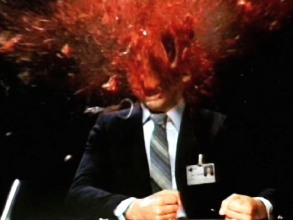
Last spring when I was clearing stuff out of my apartment and garage, I noticed that none of my exercise equipment or paraphernalia ever made it into the recycle piles. I simply left it where it was without even considering letting go of it. I had to question the hands-off attitude since I hadn’t used any of that stuff in at least a couple of years. Then I realized that, of course, I intended to use some or all of it again…one of these days.
I had been thinking about getting back into strength training for several months. I already had a fold-up weight bench, two sets of dumbbells, and a program I had followed here in the privacy of my own home. So when I imagined doing strength training, I automatically thought of re-starting that program. That’s what I had done before. I knew how to do strength training.
The problem was I didn’t want to do that program; I didn’t want to do any program in the privacy of my home. I wanted to join a gym and work with a personal trainer. It took me a while to realize that the strength training program I had used in the past wasn’t right for me now. Holding onto the exercise equipment—and my belief that what I needed to do was what I had done before—was actually keeping me from doing what I wanted to do. In fact, it was keeping me from doing anything.
So I got rid of most of the exercise stuff, joined a gym, connected with a great personal trainer, and have been working out four times a week for the past four and a half months. I love it, and I feel great.
This wouldn’t be particularly interesting if were nothing more than a personal anecdote. But I’ve noticed I’m not the only one with this mindset. Two friends—one male and one female—both want to lose weight. Both successfully lost significant amounts of weight in the past. Both have grappled with the conviction that they know what they need to do, which is to replicate what they did in the past. And just like me and my desire to re-start a strength training program, that conviction has delayed their taking action.
Another friend wants to get a better handle on her day-to-day finances. She developed a system that she used in the past, and her first inclination was to go back to that system because it worked before. But she readily admitted that she didn’t really like it and didn’t particularly want to start using it again.
Whether it was exercising, losing weight, or keeping track of money, all of us got hung up on whatever we did that worked in the past and assumed that was the only way we could be successful in the present. Rather than using our past successes as motivation to figure out what would work now, we focused on the details of what we did before. We forgot that when we were successful the first time, we weren’t relying on past experience. We had to figure it out. (We also may have forgotten other failed attempts that preceded our successful ones.)
Our brains create the sense (illusion) of a continuous self. But our present self is not our past self, nor is it our future self. When we imagine that we “know how to do that” because it worked in the past, we forget we’re not that person anymore. Instead of trying to repeat what our past self did, we’re more likely to be successful if we start fresh—if we start by assuming we don’t know how to do that. Then we have an opportunity to find out what might work this time around.



